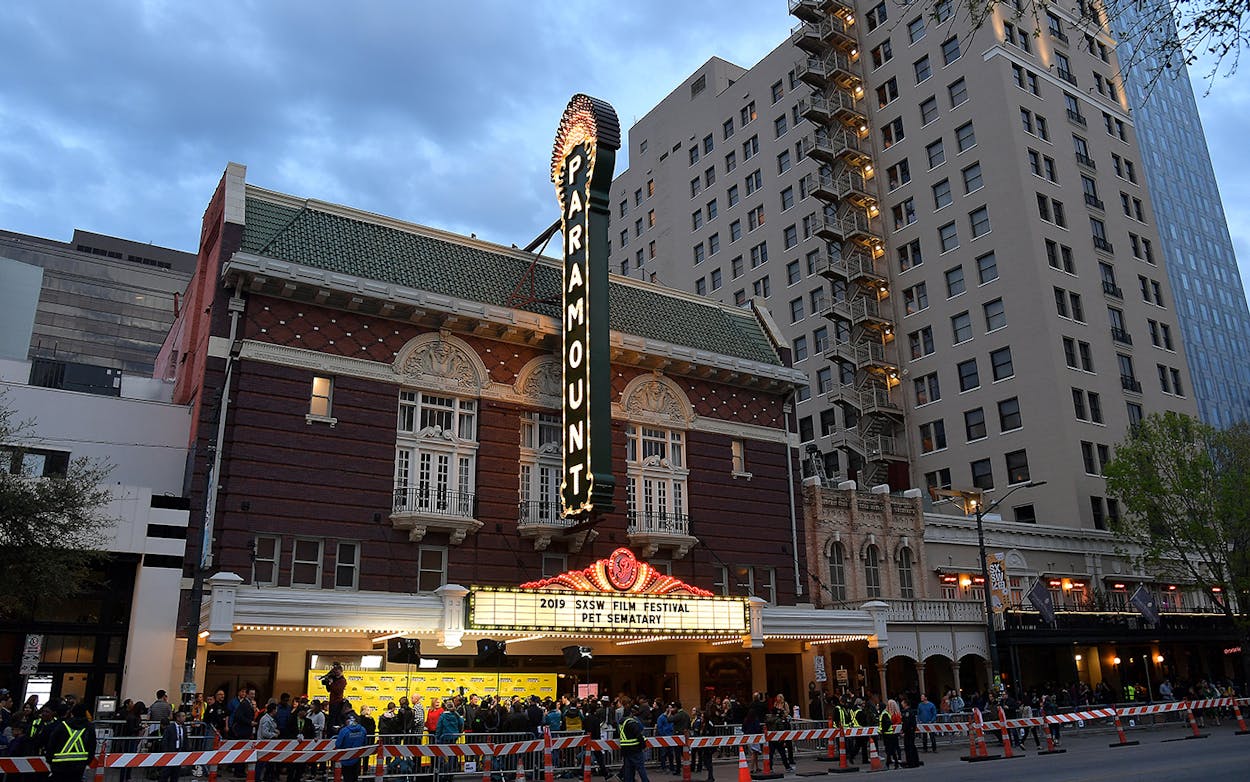Over the past week, the idea of South by Southwest being canceled because of coronavirus concerns went from largely unthinkable to increasingly inescapable. As fears over COVID-19 spread, festival attendees and sponsors began canceling—first a trickle of speakers and tech companies, then an avalanche of mammoth corporate entities and media organizations that make SXSW what it is. And then, finally, on Friday afternoon, the city of Austin announced a state of disaster, and formally pulled the plug on SXSW 2020. This is the first time the event has been canceled in its 34-year-history, the festival said. (Disclaimer: Texas Monthly had partnered with SXSW to put on a performance during the conference)
The decision will have a huge impact on all sectors of the Austin economy. While SXSW is insured, it appears that policy may not apply to a disease outbreak or ‘local state of disaster,’ the Austin Chronicle reports. The financial ecosystem built around a reliable windfall every March is significantly more fragile. Bars, restaurants, and event spaces that booked private events suddenly find themselves with big gaps in their plans, and almost certainly a surplus of food and drink they had ordered in anticipation of those events. Temporary employees they hired to serve the crowd will have an unanticipated week off—with restaurants stuck with the tough decision of whether to leave those workers in a financial lurch or to absorb the cost of paying them anyway.
It’s not just the service industry, either. Carpenters and electricians who build the elaborate brand activations that have come to define SXSW in recent years are suddenly facing unpaid time off during what, for many of them, is one of the busiest times of the year. The event production houses that a company like Amazon or HBO contracts their labor through are likely insured—but the ground-level crew will eat the losses. Uber and Lyft drivers who planned their spring finances around a reliable source of income will need to put in longer hours. Temporary cleaning personnel at local hotels will be scrambling for work. And on, and on, through most of the local economy.
That is, of course, to say nothing of the creative class that makes SXSW what it is. Established Hollywood royalty Judd Apatow, whose The King of Staten Island was scheduled to premiere at the festival, will be fine—but the countless new and independent filmmakers whose projects earned them a prestigious SXSW premiere that they hoped could launch their careers are going to have to come up with new plans. Bands that routed their tours around spending several days in Austin, playing official festival showcases (for free), and unofficial day parties (for corporate sponsors) are going to have to figure out what else to do with a bunch of canceled shows in Texas. Most of the hundreds of artists who play SXSW aren’t rock stars, either—there are a lot of people who take time off from their day jobs in order to hand-to-mouth it across America to the festival, sleeping on floors and playing five shows in three days.
But given our evolving understanding of the coronavirus, the festival was no longer a viable option by the end of the week. Even leaving aside the fact that, without Apple, Amazon, Facebook, WarnerMedia, and the other mammoth corporations funding the festivities, there is no SXSW as we’ve come to know it—we are on the verge of a global pandemic. Canceling the festival was not a decision anyone could or should make lightly, but not canceling, as thousands in New York were placed in quarantine and more than a dozen people around the U.S. died from COVID-19, became untenable. Nothing about this was easy—but over the course of the week, it became clear that it was the right thing to do. As Spencer Fox, a former epidemiologist, wrote in the Austin American-Statesman, “In the field of epidemiology, we often equate each imported case of a disease to a spark. Not all sparks cause forest fires, but given the right conditions, it only takes one. SXSW will bring hundreds of thousands of potential sparks to Austin and put them in close contact with dry kindling.”
See also: Tito’s Vodka Is for Drinking, Not Sanitizing Against the Coronavirus
The incentive to hold the festival amid the worsening threat of the coronavirus was increasingly limited, too. If media organizations and entertainment industry professionals were canceling their plans to attend, how much was a SXSW film premiere or music showcase really worth? If the big corporate money wasn’t going to be flowing, then holding the festival in name only became the worst of both worlds—all of the risk of a large centralized gathering, without the economic or creative benefits that SXSW usually brings.
And yet there’ll probably end up being something that bears a passing resemblance to SXSW happening in Austin in mid-March. Nobody will wear a badge or a wristband, but musicians who booked shows in Austin will try to play them, rather than cool their heels and waste their time. Venues that want to salvage bar receipts will still hold shows. At least some of the people who made travel plans and took time off will still decide to visit Austin, and they’ll still be looking for places to eat and have fun. Whatever ends up going on won’t be SXSW, but barring extreme measures like a public curfew or quarantine, we’d expect to hear music in the streets and see crowds in the bars. Whether that’s enough to keep people healthy and businesses running, we can only hope.








